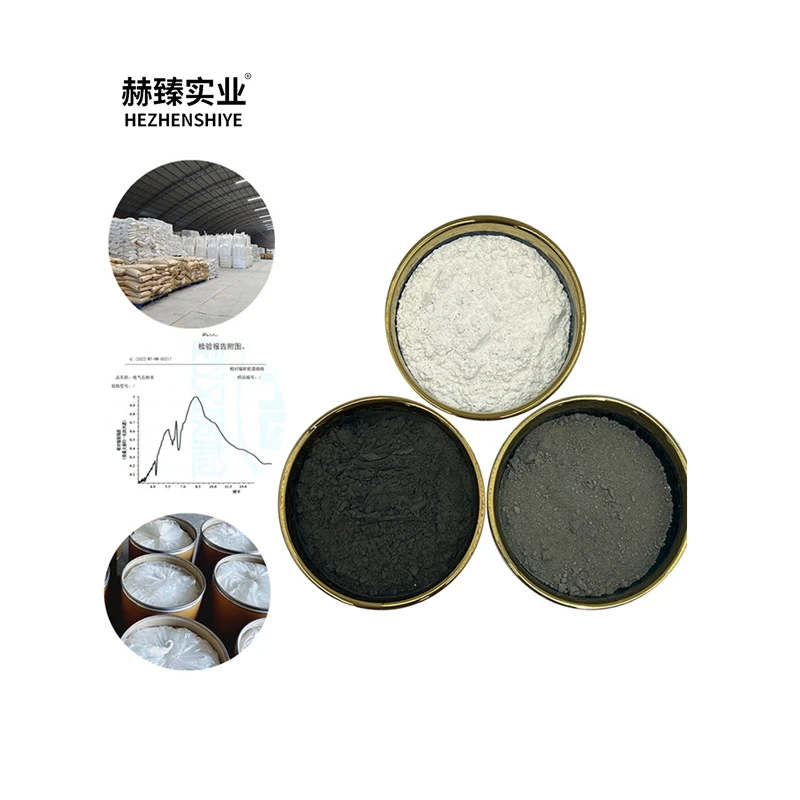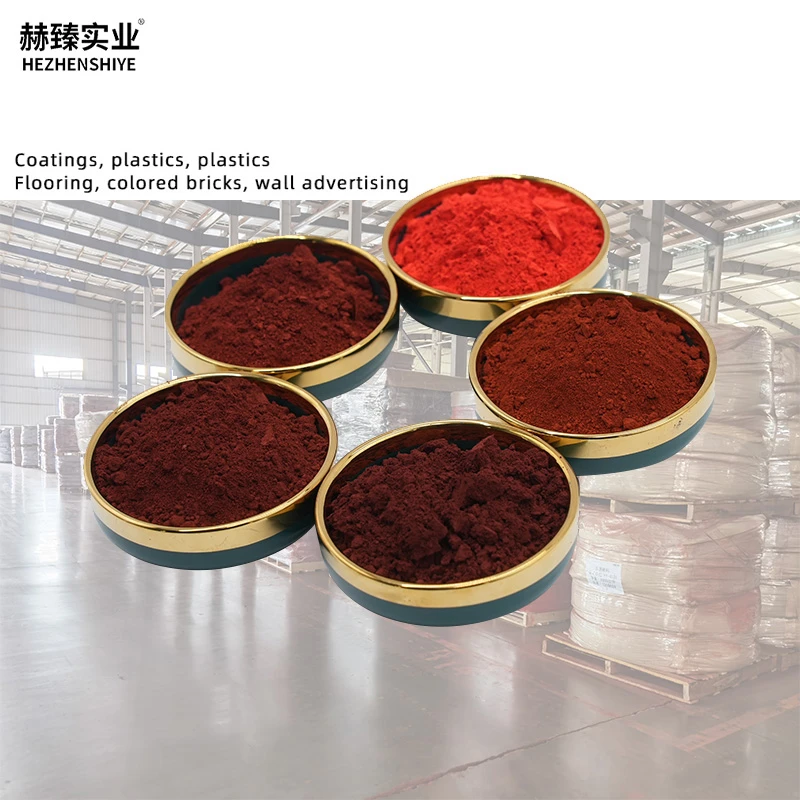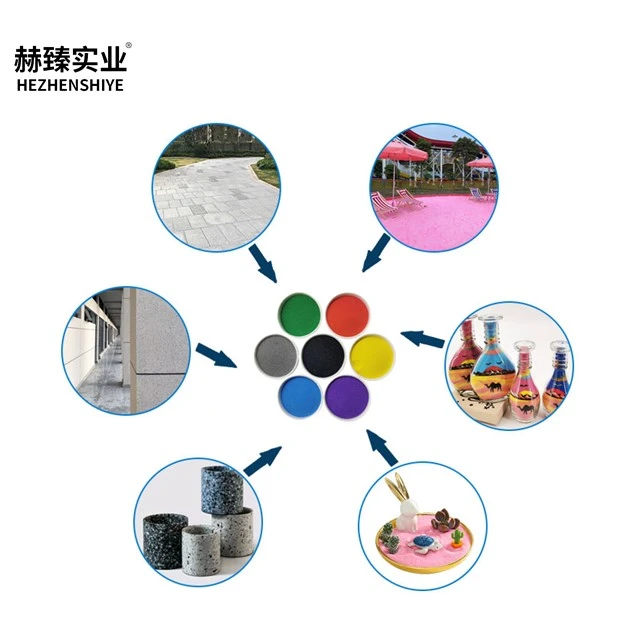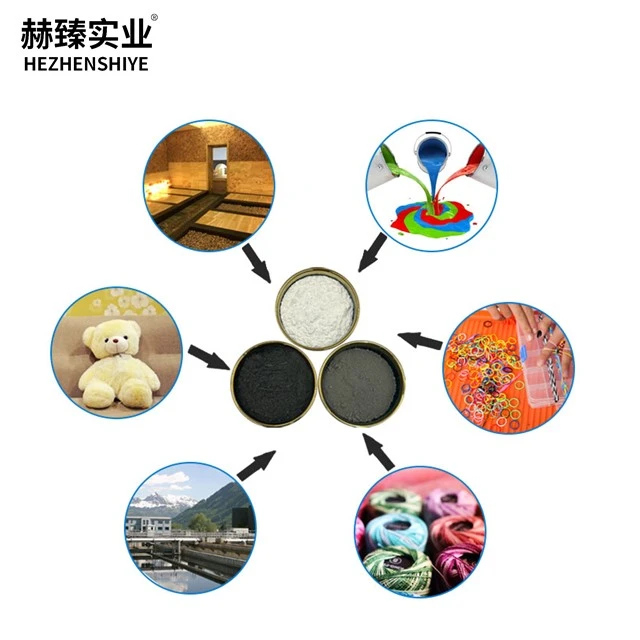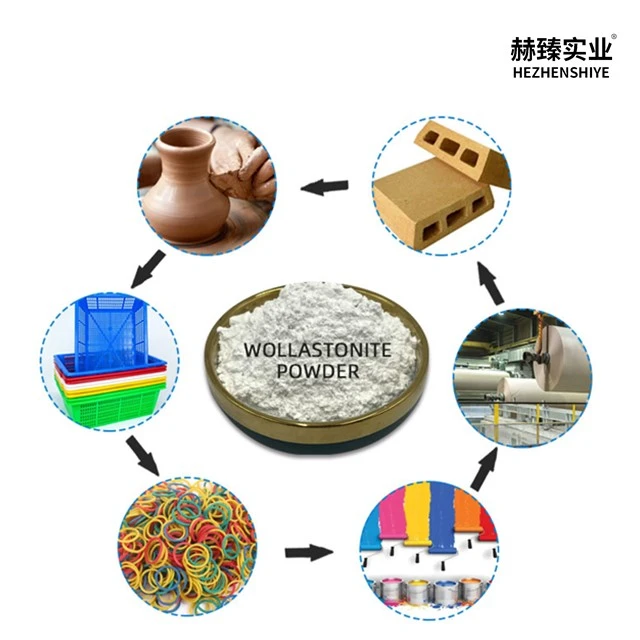Tourmaline Powder Building Material Additive Enhance Concrete Strength Improve Thermal Insulation Reduce Water Absorption Floors Walls
2025.08.18
Building materials like concrete require a balance of strength, thermal insulation, and water resistance to meet modern construction standards, but traditional concrete often falls short: low compressive strength requires thicker structures, poor thermal insulation increases energy costs, and high water absorption leads to cracking and corrosion. Tourmaline powder, a mineral additive with unique structural and thermal properties, addresses these issues, enhancing the performance of concrete for floors, walls, and other structural components.
The strength enhancement provided by tourmaline powder in concrete stems from its particle interaction with cement hydration products. When added to concrete mixtures, tourmaline particles (typically 10-20 μm) act as nucleation sites for calcium silicate hydrate (CSH)—the main binding phase of hardened cement. This accelerates CSH formation and improves its distribution, creating a denser concrete matrix with fewer pores. Tests show that adding 8-12% tourmaline powder to Portland cement concrete increases compressive strength by 30-40% (from 30 MPa to 39-42 MPa) after 28 days of curing, and flexural strength by 25-35% (from 3.5 MPa to 4.4-4.7 MPa). This allows for thinner concrete structures—for example, a floor slab that previously required 150mm thickness can be reduced to 120mm with tourmaline powder, cutting material costs by 20% and reducing structural weight. Additionally, the powder’s irregular particle shape improves aggregate bonding, reducing the risk of spalling (surface flaking) in high-traffic areas like commercial floors.
Thermal insulation is a critical improvement provided by tourmaline powder in concrete. Traditional concrete has high thermal conductivity (1.5-2.0 W/m·K), leading to significant heat transfer through walls and floors, which increases heating and cooling costs. Tourmaline’s porous structure (porosity 25-30%) and low thermal conductivity (0.3-0.5 W/m·K) reduce the concrete’s overall thermal conductivity to 0.8-1.0 W/m·K. This improves the building’s energy efficiency—residential walls made with tourmaline-enhanced concrete have a U-value (heat transfer rate) of 0.5-0.6 W/m²·K, compared to 0.8-0.9 W/m²·K for traditional concrete walls. A Chinese residential development using tourmaline-concrete walls reported a 25% reduction in annual heating costs, as the improved insulation reduced heat loss in winter. The powder also reduces thermal bridging (heat transfer through structural elements), further enhancing energy efficiency in large buildings.
Water absorption reduction is another key benefit of tourmaline powder in concrete. Traditional concrete absorbs water through capillary pores, leading to freeze-thaw damage (in cold climates) and steel reinforcement corrosion. Tourmaline’s hydrophobic surface and pore-filling effect reduce concrete water absorption by 40-50%—the water absorption rate (ASTM C1585) of tourmaline-enhanced concrete is 3-4%, compared to 6-8% for traditional concrete. This makes the concrete more durable in humid or rainy environments: concrete floors with tourmaline powder have a 70% reduction in cracking due to moisture expansion, and steel-reinforced concrete walls have a 50% longer service life (from 30 years to 45 years) due to reduced corrosion. For underground structures like basements or parking garages, this water resistance is critical, as it prevents mold growth and structural deterioration.
Workability is an important consideration in concrete construction, and tourmaline powder maintains or improves concrete workability. Unlike some strength-enhancing additives that increase viscosity, tourmaline’s lubricating properties reduce concrete slump loss (the reduction in workability over time). Concrete with 10% tourmaline powder has a slump loss of 20-25mm after 60 minutes, compared to 35-40mm for traditional concrete, making it easier to place and finish. This is particularly beneficial for large construction projects (e.g., commercial buildings, bridges) where concrete must be transported long distances or placed over extended periods.
Compatibility with other concrete additives makes tourmaline powder versatile. It works with admixtures like water reducers, air-entraining agents, and retarders, as well as supplementary cementitious materials (SCMs) like fly ash and slag. For example, combining tourmaline powder with fly ash further improves thermal insulation and reduces cement usage, lowering carbon emissions. The powder is also compatible with colored concrete, as its inert nature does not affect pigment dispersion—colored concrete floors with tourmaline powder maintain consistent color even after years of exposure to sunlight and cleaning agents.
Customization options cater to diverse construction needs. Suppliers offer tourmaline powder with different particle sizes: fine grades (5-10 μm) for high-strength concrete (e.g., structural columns), and coarser grades (20-30 μm) for thermal insulation-focused concrete (e.g., exterior walls). High-purity grades (95%+ tourmaline content) are ideal for critical structures (e.g., bridges, high-rises), while cost-effective grades (80-90% content) suit non-structural applications (e.g., decorative concrete floors). Surface-treated grades—coated with silane—improve water repellency further, making them suitable for marine or coastal construction.
Practical application cases highlight tourmaline powder’s impact. A Dubai commercial building used tourmaline-enhanced concrete for its exterior walls, achieving a 30% reduction in air conditioning costs due to improved insulation. A Canadian residential project used tourmaline-concrete floors in basements, eliminating moisture-related mold issues that had plagued previous developments. These cases demonstrate tangible energy and maintenance savings, making tourmaline powder an attractive choice for global construction companies.
For foreign trade merchants,marketing tourmaline powder as a concrete additive requires emphasizing strength, thermal efficiency, and durability. Providing test reports from construction material labs (e.g., ASTM International, China Building Materials Test & Certification Group) verifying compressive strength, thermal conductivity, and water absorption builds credibility. Highlighting sustainability benefits—reduced concrete thickness lowers cement usage and carbon emissions—appeals to eco-conscious builders. Additionally, offering technical support, such as mix design recommendations (e.g., 10% tourmaline + 70% aggregate + 20% cement) and on-site testing services, helps clients integrate the powder into their projects.
Packaging and compliance support are essential for international sales. Tourmaline powder should be packaged in moisture-proof, durable containers—25kg plastic bags with inner liners are standard, while 1-ton bulk bags suit large construction sites. Providing English-language TDS and SDS ensures compliance with import regulations (e.g., EU CE marking, US ASTM standards). Offering flexible delivery schedules (2-4 weeks for standard grades) accommodates construction project timelines, a key factor in the building materials market.
In summary, tourmaline powder’s ability to enhance concrete strength, improve thermal insulation, reduce water absorption, and maintain workability makes it a valuable additive for building materials. Its cost-effectiveness, compatibility with other additives, and proven application cases position it as an excellent product for foreign trade merchants targeting the global construction industry. By highlighting these advantages, businesses can effectively promote tourmaline powder to contractors, concrete producers, and developers seeking high-performance, sustainable building solutions.






